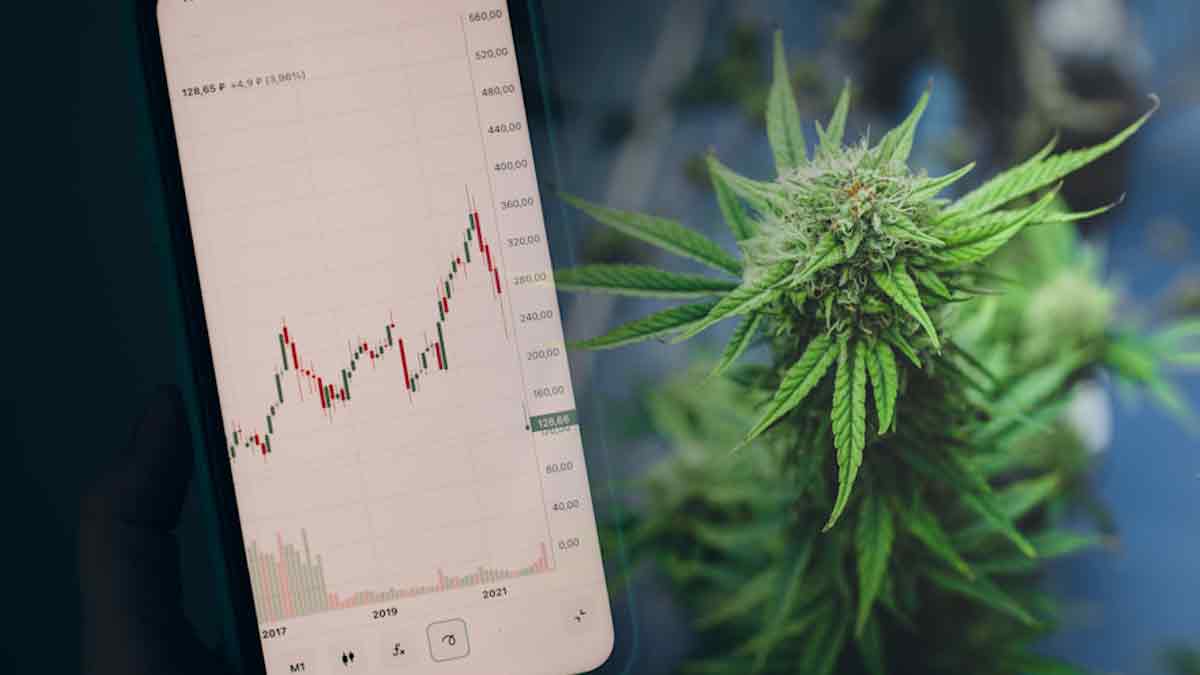Company Files Sixth Provisional Patent Application With the United States Patent and Trademark Office for Cannabinol, Melatonin and Valerian Root Formulations for Sleep and Anxiety
Stevia Corp. (OTCQB: STEV) (“Stevia Corp” or the “Company”), an international farm management company and healthcare company focused on the commercial development of products that support a healthy lifestyle, including stevia and hemp and their compounds is pleased to announce the filing of a sixth provisional patent application with the United States Patent and Trademark Office (USPTO) for the treatment of sleep and anxiety disorders using cannabinol (“CBN”) in combination with melatonin and valerian root.
Together, sleep and anxiety disorders affect almost 50 million Americans each year. Behavior therapy, change in eating habits, exercise, over-the-counter (“OTC”) and prescription drugs are just some of the prescribed therapies to treat sleep and anxiety disorders. Because many people suffering from these disorders look for short-term solutions, a large percentage use prescription pills including powerful narcotics for quick solutions. Unfortunately, these pills don’t cure the underlying problems and in fact, they sometimes can exacerbate the problem in the long run.
Cannabinol (“CBN”) is a molecule that is present in most varieties of the cannabis plant and is arguably the third best-known cannabinoid after tetrahydrocannabinol (“THC”) and cannabidiol (“CBD”) and is the cannabinoid responsible for the sedative effects of cannabis.
Melatonin is a hormone made by the pineal gland that manipulates the body’s internal clock and sleep cycle. At night when it begins to get dark, melatonin levels increase signaling the body to enter the sleep cycle. In the morning when it begins to get light, melatonin levels decrease signaling the body to enter the wake cycle.
Valerian is classified as an herbal medicine and a dietary supplement produced from the roots of the valerian plant, which is used to treat anxiety in addition to depression, tremors, epilepsy, attention deficit hyperactivity disorder (“ADHD”) and chronic fatigue syndrome.
The provisional patent was filed with the assistance of an intellectual property attorney with extensive experience in the healthcare industry. A provisional patent application is a legal document which establishes an early priority date for the benefit of claiming “first to file” status against other companies or individuals that may want to file a patent with similar claims after the filing date of our provisional patent application.
Over the past five months, Stevia Corp has embarked on both an intellectual property strategy and a commercial strategy to place the company in an advantageous position over other companies in the industry that have also recognized the significant therapeutic value of cannabinoids related to human healthcare. The Company has filed four separate provisional patent applications for CBD in combination with the four largest OTC painkillers in the world. Each one of these patent applications contain multiple claims including encompassing other cannabinoids in combination with CBD and acetaminophen, ibuprofen, aspirin and naproxen. These four patent applications contain a total of over sixty claims.
On March 6th 2015, the Company announced that it filed a fifth provisional patent application with the United States Patent and Trademark Office for a non-invasive delivery system for cannabinoids. The delivery system gives the patient complete control over the titration of the dose to the desired effect that they are trying to achieve. The delivery system patent contained 19 claims.
Today’s announcement is the sixth provisional patent application filed by the Company within the past five months and the Company will focus on commercializing the intellectual property it has developed.
George Blankenbaker, President of Stevia Corp, commented, “To maximize the value of our IP while using minimal resources, we are in discussions to establish one or two early stage clinical trials with the CBD/OTC drug formulations and complete animal safety studies with a minimum goal to receive Investigational New Drug (“IND”) approval and then begin recruiting patients for a Phase 1 trial. We fully intend to pursue partnerships with major pharmaceutical and biotech companies.”
Mr. Blankenbaker continued, “We are also preparing to file utility patent applications on all previously filed provisional patent applications by the end of 2015 and intend to continue building a world-class advisory panel. These patent applications relate to some of the best selling drugs in the world while also addressing some of the largest healthcare markets including pain, sleep and anxiety.”
Mr. Blankenbaker concluded, “We believe the Company has a bright future and that the long-term upside for the Company and our major footprint in the United States market may lie in our provisional patent portfolio and the related IP, while we continue to develop a revenue base in Asia and focus on marketing hemp products in the US through our subsidiary, Real Hemp LLC. In Asia, we have achieved a sufficient growing base and are now focused on downstream, higher margin opportunities such as joint venture processing factories with major customers. In the US, we are in discussions with multiple food manufacturers to confirm supply agreements for bulk hemp ingredients and are preparing to launch our on-line store in July. We also intend to license our stevia formulation IP and aquaculture protocols in South America to grow seafood for major US buyers. As our cannabis IP is developed and commercialized, we will explore the potential of unlocking shareholder value through strategic restructuring, including possibly splitting the Company into two public companies, one being agriculture focused and the other being hemp/cannabis focused with the goal to up-list to a major stock exchange.
About Stevia Corp. (OTCQB: STEV)
Stevia Corp. is a farm management company and healthcare company focused on developing highly nutritional, high value products through proprietary plant breeding, excellent agricultural methodologies and innovative post-harvest techniques. Stevia Corp invests in R&D and IP acquisition and manages its own propagation, nursery and plantations as well as provides services to contract growers and other industry growers. Stevia Corp was founded on the principal of implementing socially responsible, sustainable, quality agribusiness solutions to maximize the long-term efficient production of nutritional crops. For additional information please visit: www.steviacorp.us.
About the Hemp Industry Sector
Industrial Hemp is a crop that can be grown for food and non-food purposes. As a result of its numerous nutritional benefits, many new food products containing hemp seed and its oil are finding their way into the marketplace, including pasta, tortilla chips, salad dressings, snack products and frozen desserts. Hemp seed contains a complete protein and the seed oil is the richest source of essential fatty acids (Omega-6 and Omega-3) with the perfect ratio of 3:1. Hemp seed oil is also used in nutraceuticals and health care products.
As a fiber source, hemp is undergoing rapid growth as a natural fiber in everything from clothing and textiles to automotive composites. The fiber is also gaining popularity as insulation and other building materials.
The Hemp Industries Association (HIA) estimated that the 2014 retail sales value of hemp food and body care products in the United States was $200 million. When clothing, paper, auto parts, building materials and various other products are included, the HIA estimates that the total retail value of hemp products sold in the U.S. in 2014 to be at least $620 million. Total hemp retail sales in the U.S. have continued to grow steadily and the annual percent growth is estimated by the HIA to have progressed from 7.3% (2011), to 16.5% (2012), to 24% (2013), to 21.2% in 2014.
Industrial Hemp is distinct from marijuana and is defined as the plant Cannabis sativa L. and any part of such plant, whether growing or not, with a delta-9 tetrahydrocannabinol concentration of not more than 0.3 percent on a dry weight basis.
Although it is legal to import and sell industrial hemp products in the U.S., it is not yet legal to commercially grow industrial hemp in the U.S. The 2013 farm bill was signed into law in February 2014 and contained a hemp amendment, Sec. 7606 Legitimacy of Industrial Hemp Research, which allows states that have already legalized the crop to cultivate hemp within the parameters of state agriculture departments and research institutions.
In January of 2015, The Industrial Hemp Farming Act was introduced in the House and Senate, H.R. 525 and S. 134 respectively. If passed, the bill would remove all federal restrictions on the cultivation of industrial hemp, and remove its classification as a Schedule 1 controlled substance.
About Cannabinoids
There are at least 85 different cannabinoids that have been identified in the cannabis plant. The most notable cannabinoid is tetrahydrocannabinol (THC), which is the primary psychoactive compound in marijuana (a variety of cannabis containing high levels of THC). Cannabidiol (CBD) is another major constituent of the plant and is a primary compound in Industrial Hemp (a variety of cannabis containing less than 0.3% THC on a dry weight basis).
Cannabinoids are a class of diverse chemical compounds that act on cannabinoid receptors. At present there are two known types of cannabinoid receptors, termed CB1 and CB2, with mounting evidence of more. The human brain has more cannabinoid receptors than any other G protein-coupled receptor type. CB1 receptors are found primarily in the brain and CB2 receptors are predominantly found in the immune system or immune-derived cells. Ligands for these receptor proteins include the endocannabinoids (produced naturally in the body by humans and animals), the phytocannabinoids (found in cannabis and some other plants), and synthetic cannabinoids (manufactured artificially).
In October 2003, U.S. patent U.S. Patent 6,630,507 entitled “Cannabinoids as antioxidants and neuroprotectants” was assigned to “The United States Of America As Represented By The Department Of Health And Human Services.” The patent was filed in April 1999 and listed as the inventors: Aidan J. Hampson, Julius Axelrod, and Maurizio Grimaldi, who all held positions at the National Institute of Mental Health (NIMH) in Bethesda, MD, which is part of the National Institutes of Health (NIH), an agency of the United States Department of Health and Human Services (HHS). The patent mentions cannabidiol’s ability as an antiepileptic, to lower intraocular pressure in the treatment of glaucoma, lack of toxicity or serious side effects in large acute doses, its neuroprotectant properties, its ability to prevent neurotoxicity mediated by NMDA, AMPA, or kainate receptors; its ability to attenuate glutamate toxicity, its ability to protect against cellular damage, its ability to protect brains from ischemic damage, its anxiolytic effect, and its superior antioxidant activity which can be used in the prophylaxis and treatment of oxidation associated diseases.
Oxidative associated diseases include, without limitation, free radical associated diseases, such as ischemia, ischemic reperfusion injury, inflammatory diseases, systemic lupus erythematosus, myocardial ischemia or infarction, cerebrovascular accidents (such as a thromboembolic or hemorrhagic stroke) that can lead to ischemia or an infarct in the brain, operative ischemia, traumatic hemorrhage (for example a hypovolemic stroke that can lead to CNS hypoxia or anoxia), spinal cord trauma, Down’s syndrome, Crohn’s disease, autoimmune diseases (e.g. rheumatoid arthritis or diabetes), cataract formation, uveitis, emphysema, gastric ulcers, oxygen toxicity, neoplasia, undesired cellular apoptosis, radiation sickness, and others. Cannabinoids are believed to be particularly beneficial in the treatment of oxidative associated diseases of the CNS, because of the ability of the cannabinoids to cross the blood brain barrier and exert their antioxidant effects in the brain. It is believed that pharmaceutical composition of cannabinoids can be used for preventing, arresting, or treating neurological damage in Parkinson’s disease, Alzheimer’s disease and HIV dementia; autoimmune neurodegeneration of the type that can occur in encephalitis, and hypoxic or anoxic neuronal damage that can result from apnea, respiratory arrest or cardiac arrest, and anoxia caused by drowning, brain surgery or trauma (such as concussion or spinal cord shock).
Notice Regarding Forward-Looking Statements
This news release contains “forward-looking statements” as that term is defined in Section 27A of the United States Securities Act of 1933, as amended and Section 21E of the Securities Exchange Act of 1934, as amended. Statements in this press release, which are not purely historical, are forward-looking statements and include any statements regarding beliefs, plans, expectations or intentions regarding the future. Such forward-looking statements include, among other things, commercializing the Company’s intellectual property, establish clinical trials and animal safety studies, pursue partnerships with major pharmaceutical and biotech companies, filing utility patent applications on all previously filed provisional patent applications by the end of 2015, growing the advisory panel, joint ventures for Asia operations, launch of online hemp product store in July 2015, licensing the Company’s stevia formulation intellectual property and aquaculture protocols in South America to grow seafood for major US buyers, explore strategic restructuring of the Company, the potential benefits of the cannabis plant, the commercialization of the cannabis plant, annual retail value of hemp products sold in the U.S., growth of industrial hemp product industry, potential uses of cannabinoids for treatment of various illnesses and diseases, product development and business strategy. Actual results could differ from those projected in any forward-looking statements due to numerous factors. Such factors include, among others, the inherent uncertainties associated with new projects and development stage companies. These forward-looking statements are made as of the date of this news release, and we assume no obligation to update the forward-looking statements, or to update the reasons why actual results could differ from those projected in the forward-looking statements. Although we believe that any beliefs, plans, expectations and intentions contained in this press release are reasonable, there can be no assurance that any such beliefs, plans, expectations or intentions will prove to be accurate. Investors should consult all of the information set forth herein and should also refer to the risk factors disclosure outlined in our annual report on Form 10-K for the most recent fiscal year, our quarterly reports on Form 10-Q and other periodic reports filed from time-to-time with the Securities and Exchange Commission.
Stevia Corp. Investor Relations
Email: ir@steviacorp.com
Tel: +1-888-250-2566
Web: www.steviacorp.com
MAPH Enterprises, LLC | (305) 414-0128 | 1501 Venera Ave, Coral Gables, FL 33146 | new@marijuanastocks.com







